‘This is personal’: Ukrainians reveal why they’re taking up arms as volunteer forces grow to fight Russia
A soaring number of women and men are signing up to support Ukraine’s war effort by training for combat, defending territory, and providing protection for those fleeing the conflict, reports Bel Trew from Vinnytsia

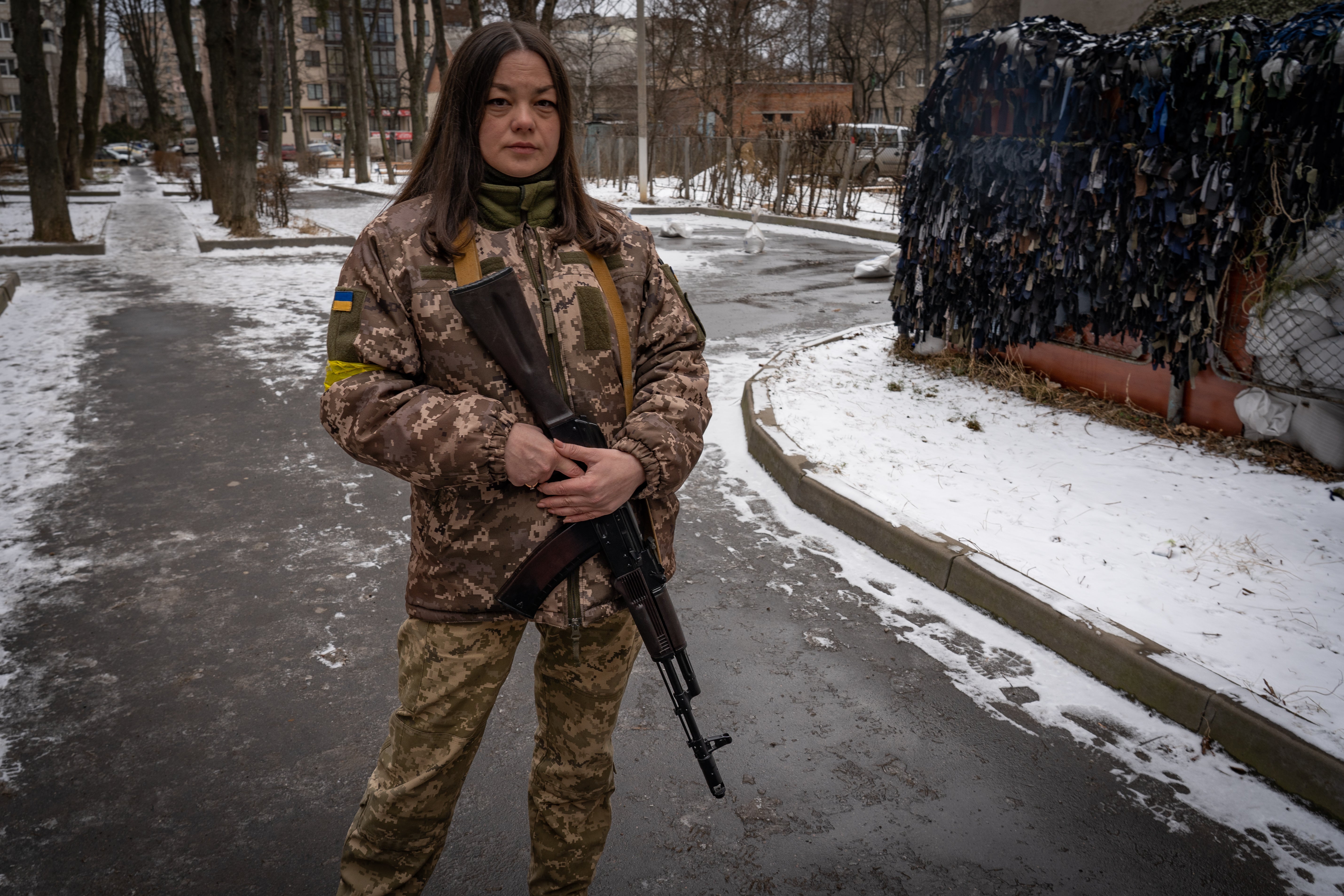
Lydia signed up because the nightmare unfolding across Ukraine over the last two weeks felt horribly familiar.
The mother-of-four – who is now part of the country’s rapidly growing civil defence force – fled her hometown in Crimea, when Russia invaded and then annexed the region in 2014.
In the chaos some eight years ago, the 40-year-old was separated from one of her children – who to this day remains in Crimea and she is unable to see.
Among the over a million Ukrainians who were internally displaced in the 2014 conflict, Lydia eventually found refuge in the central city of Vinnytsia, nearly 800km north of her hometown.
Now, the tables have turned. She has become the chairperson of a local wing of Ukraine’s sprawling civilian defence force, responsible for the security of those who have been uprooted by the conflict – now in its fifteenth day – and ended up in Vinnytsia.
Like Lydia many years ago, the arrivals have come from war-torn towns with little more than the clothes on their backs.
“These people are in the exact same position I was in in 2014, and this is why I do this job,” she says, dressed in her police uniform, as she stands guard at a shopping mall that has been turned into a temporary camp for the displaced.
Against the haunting wail of the air raid siren, Lydia helps two families, including two elderly women, who fled Kharkiv last week. With nowhere else to go, they have been living in the mall for a week.
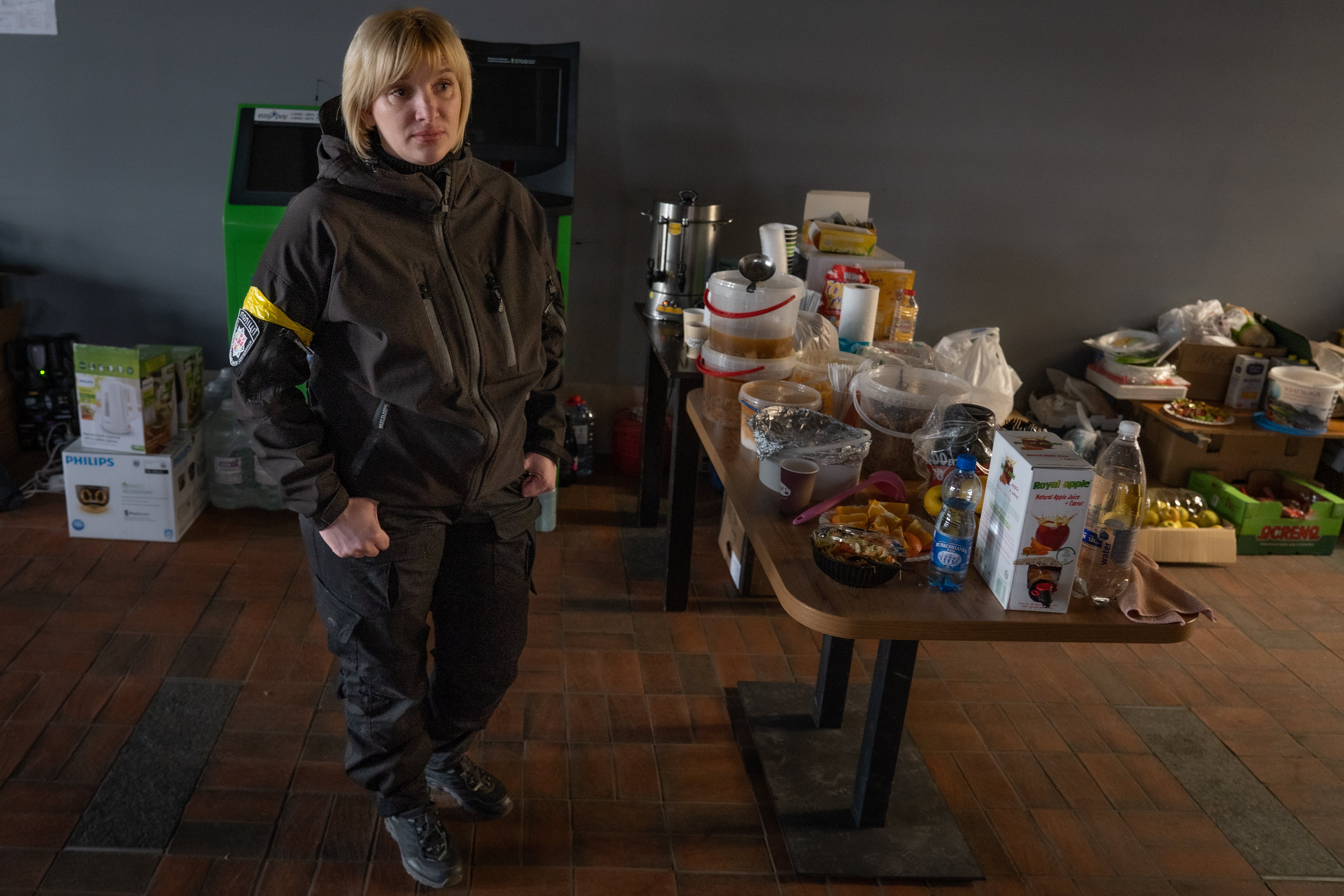
“I have friends and family members who are missing in areas which are now occupied by Russian forces. Helping these people is my way to give back,” she tells The Independent, her voice cracking with tears.
“I am not alone, we are seeing more and more women signing up,” Lydia adds, explaining how she brings her children to the shelter when it is safe to do so because childcare is non-existent in war time .
Across the city, another recent recruit, Yulia, explains how she is part of the territorial defence, which engages in active combat and is officially affiliated with the defence ministry.
In army fatigues, clutching a rifle, the mother-of-two talks about the extensive military training she has undergone – and how many more female friends are ready to join her.
Civilians are working together with the army, doing everything they can
Her husband is also in the military and so the couple juggle manning the city’s defences with childcare, which has become much harder and more dangerous in the time of war.
“Women have different kinds of positions in the military forces, snipers, intelligence gathering, driving tanks, everything the same as men,” she says, standing in the snow.
“Before the war started, nobody could believe that Ukraine could withstand the onslaught. Everyone said we had 48 hours before we would put down our weapons.
“But civilians are working together with the army, doing everything they can. From signing up to making military supplies,” she adds.
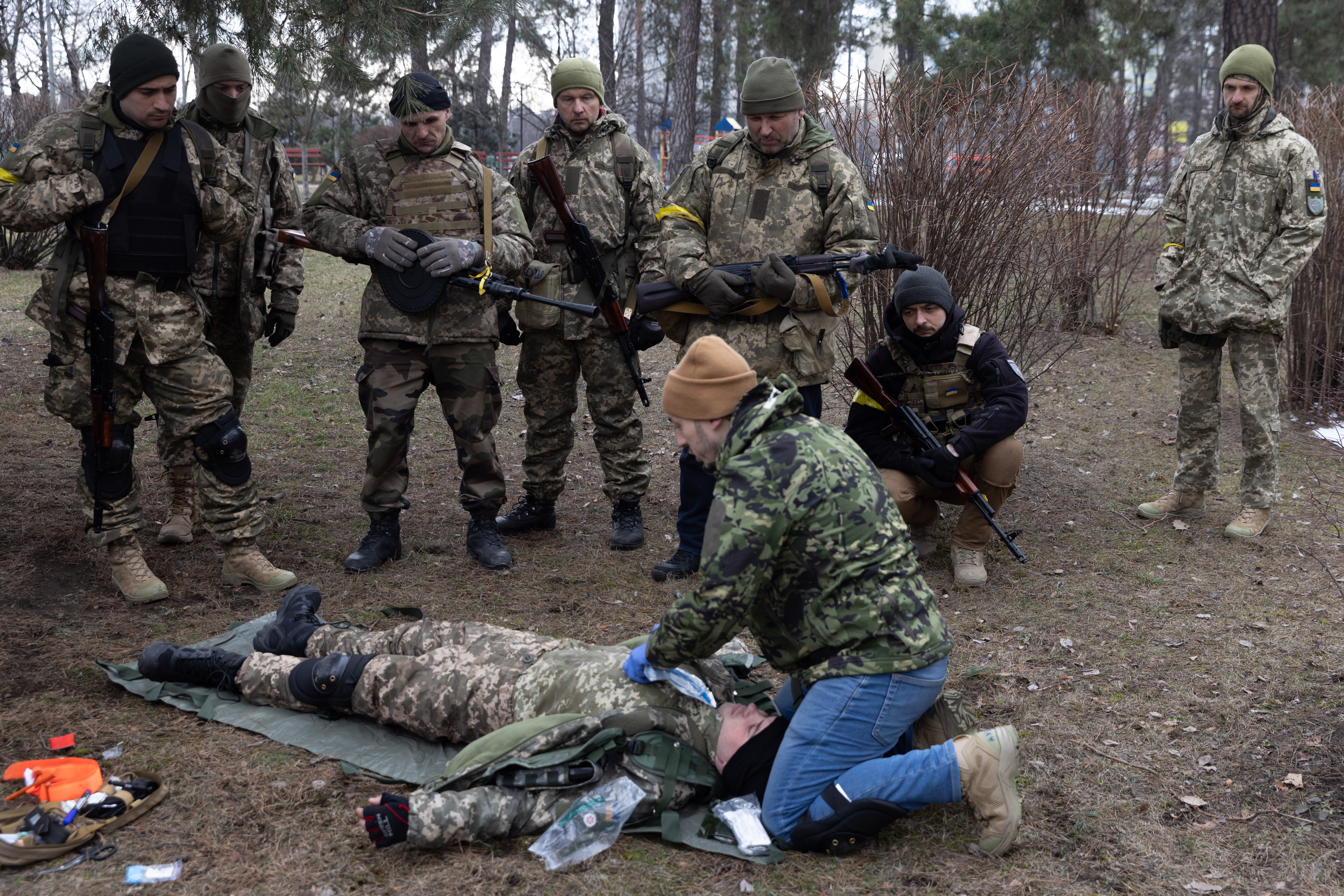
In the build-up to Russia’s invasion, Ukraine launched an extraordinary drive to mobilise its citizens, knowing it was dangerously outgunned in terms of troops and military firepower.
Prior to the conflict, Russia was believed to have about 900,000 military personnel across its forces, up to 190,000 of which were stationed at the Ukrainian border ahead of the invasion, while Ukraine had just shy of 200,000 troops.
And so Ukraine’s volunteer mobilisation was ratcheted up even further as the country quickly became the battleground of the biggest ground war in Europe since World War II.
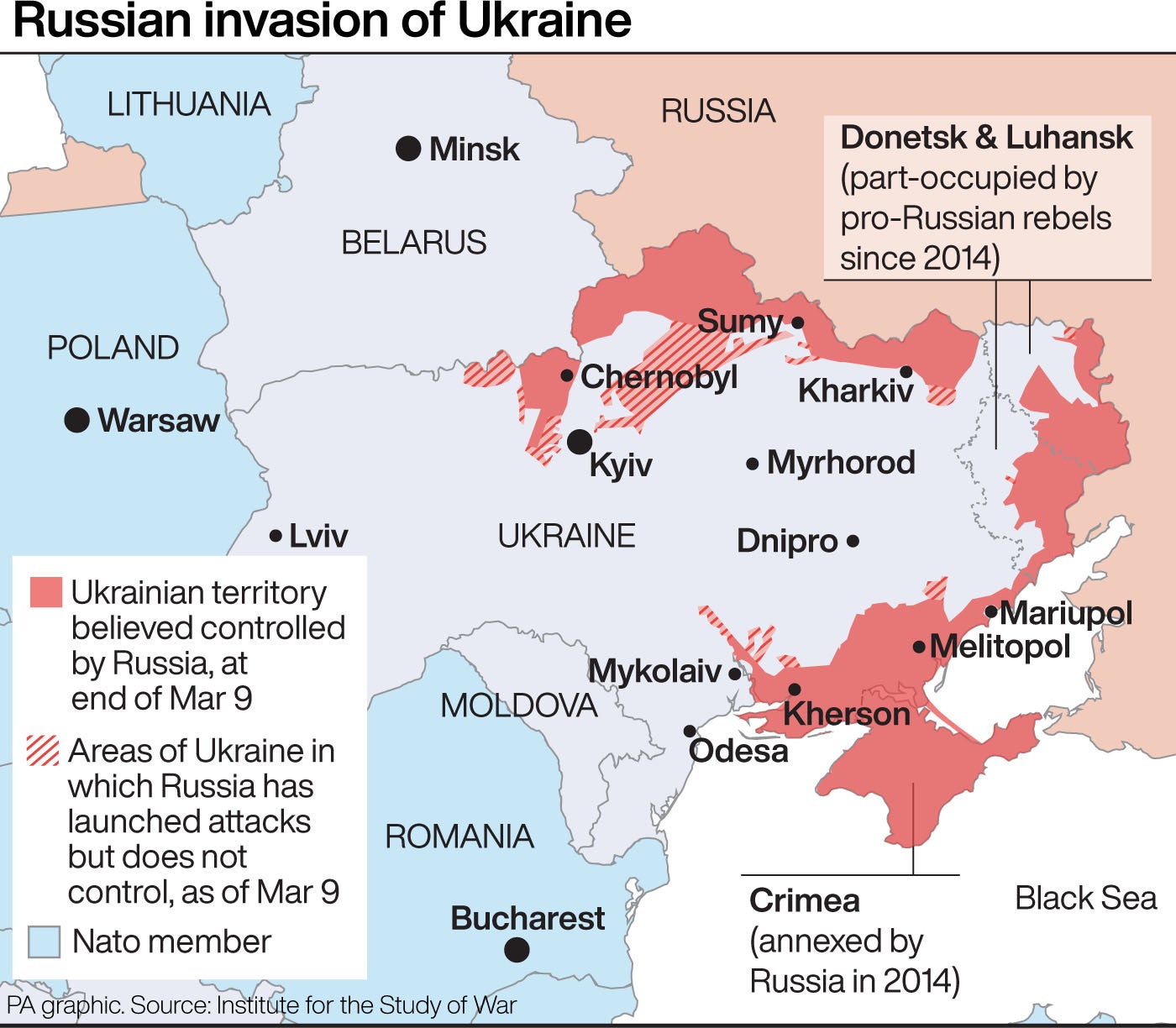
The defence ministry told The Independent that the country’s territorial defence has grown tenfold in the last two weeks and now has as many as 100,000 members – both men and women. What’s more, about 20,000 foreigners from 52 countries have volunteered to fight with Ukraine, the government said this week, although it is unclear how many have actually arrived.
Combined with those who have signed up to the civil defence, such as Lydia, there are now 1.5 million people across both forces, according to the ministry.
Most of the volunteers have been put through military training, many of them are armed.
“It is an important message to send to the enemy that no matter where they are in Ukraine, it will not be an easy walk,” Markian Lubkivskyi, an adviser to the defence minister, tells The Independent.
“It shows that Ukrainians are ready to protect their homes and their families and their countries, with whatever they have.”
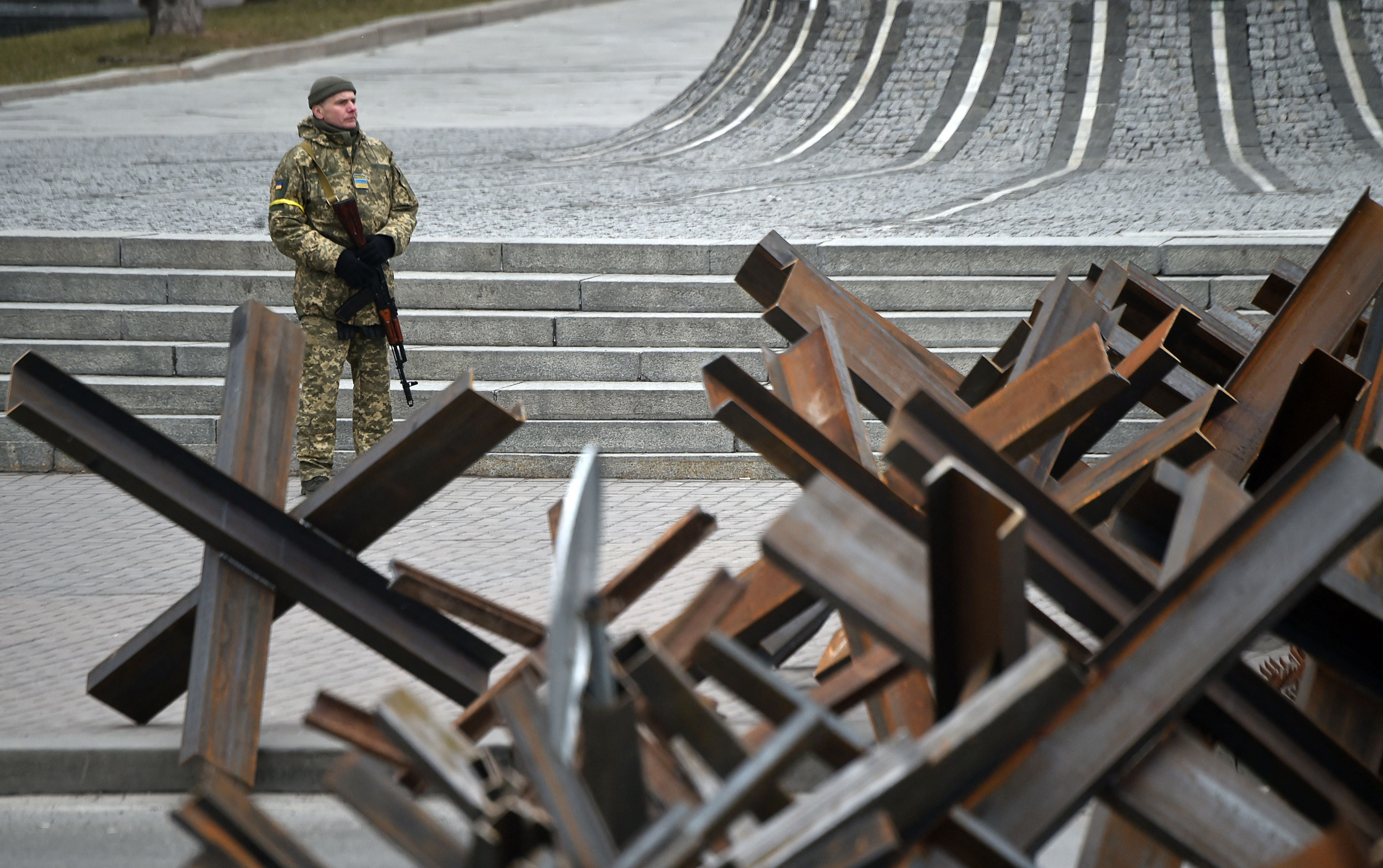
About 120km west in Khmelnitsky, this is echoed by the civilians who have signed up there.
Like Vinnytsia, it is also an important city strategically as it is on the main refugee trail and an important gateway to the comparative safety of the west and foreign borders.
The UN says that since Russia unleashed its ferocious onslaught, more than 2.3 million people have fled the country, and more and more are escaping every minute.
It has verified as many as 1,335 civilian casualties in Ukraine, including 474 killed and 861 injured, but says the real figures are likely to be considerably higher.
In Khmelnitsky, local authorities and residents say there is now a 24-hour wait to sign up to help the war effort. At the start of the conflict, there were queues around several blocks.
“The line of people willing to sign up to the territorial defence are so huge there are not even positions available to cater for them. But still people keep coming,” says Leonid, an army veteran who joined the territorial defence straight after Russia invaded.
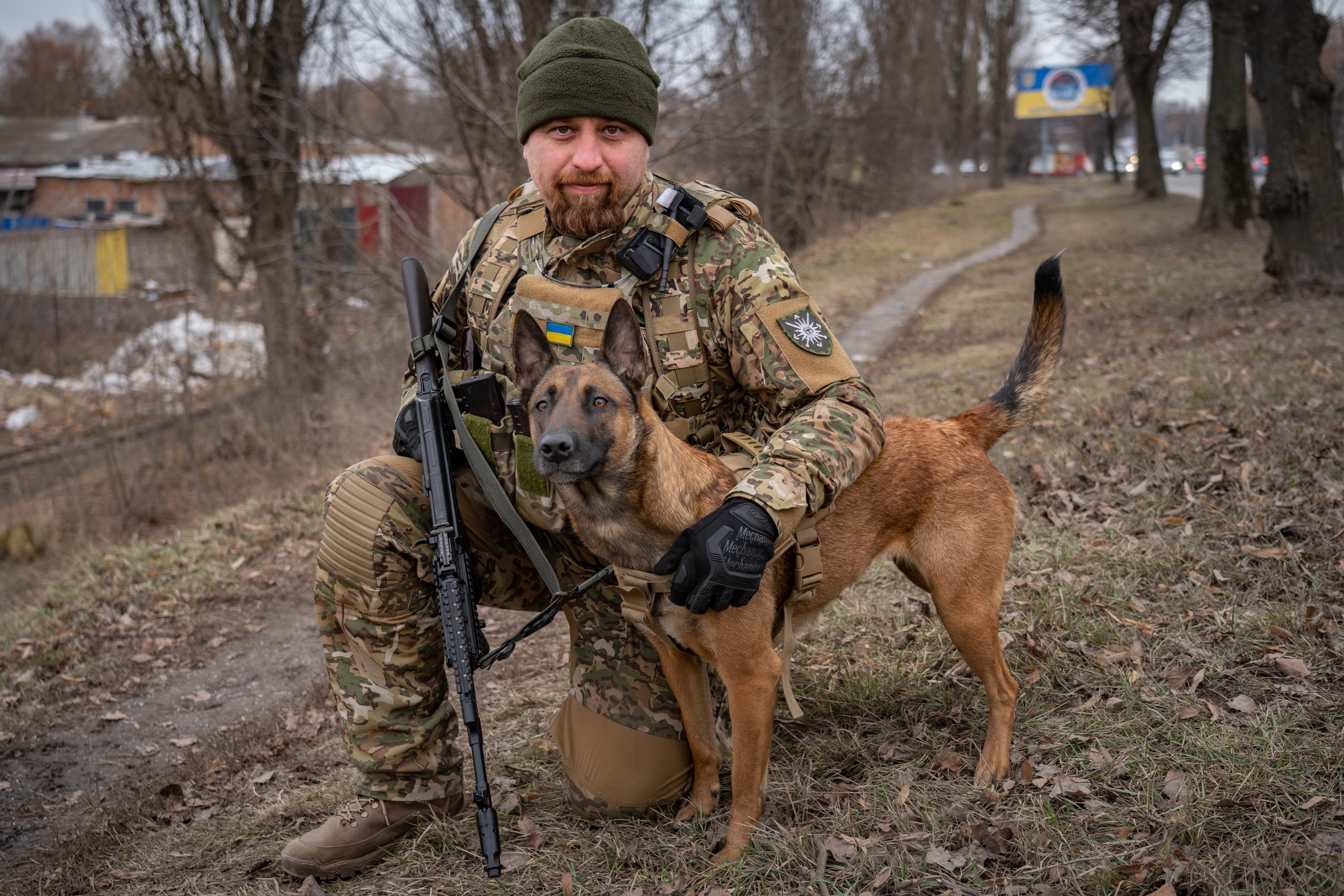
He says he served for years as master sergeant in a Special Forces regiment which fought in Ukraine, and was also deployed twice in a peacekeeping force in Iraq.
Leonid retired six years ago due to an injury but has come out of retirement to join the territorial defence and train younger recruits.
“I’m here to prepare the younger members, who have never taken part in a war, who have never held weapons in their hands,” he adds.
Among them is a father-of-three known only by his codename Calm, who ran a chainsaw business before the war. He is kitted out in full tactical gear but until recently had never held a weapon. Calm describes how he helps man checkpoints and the security of the city.
“I don’t have any sort of military training and I can’t serve in the army due to health conditions but this is personal,” he tells The Independent.
“It’s our duty to protect our homes and our families.”
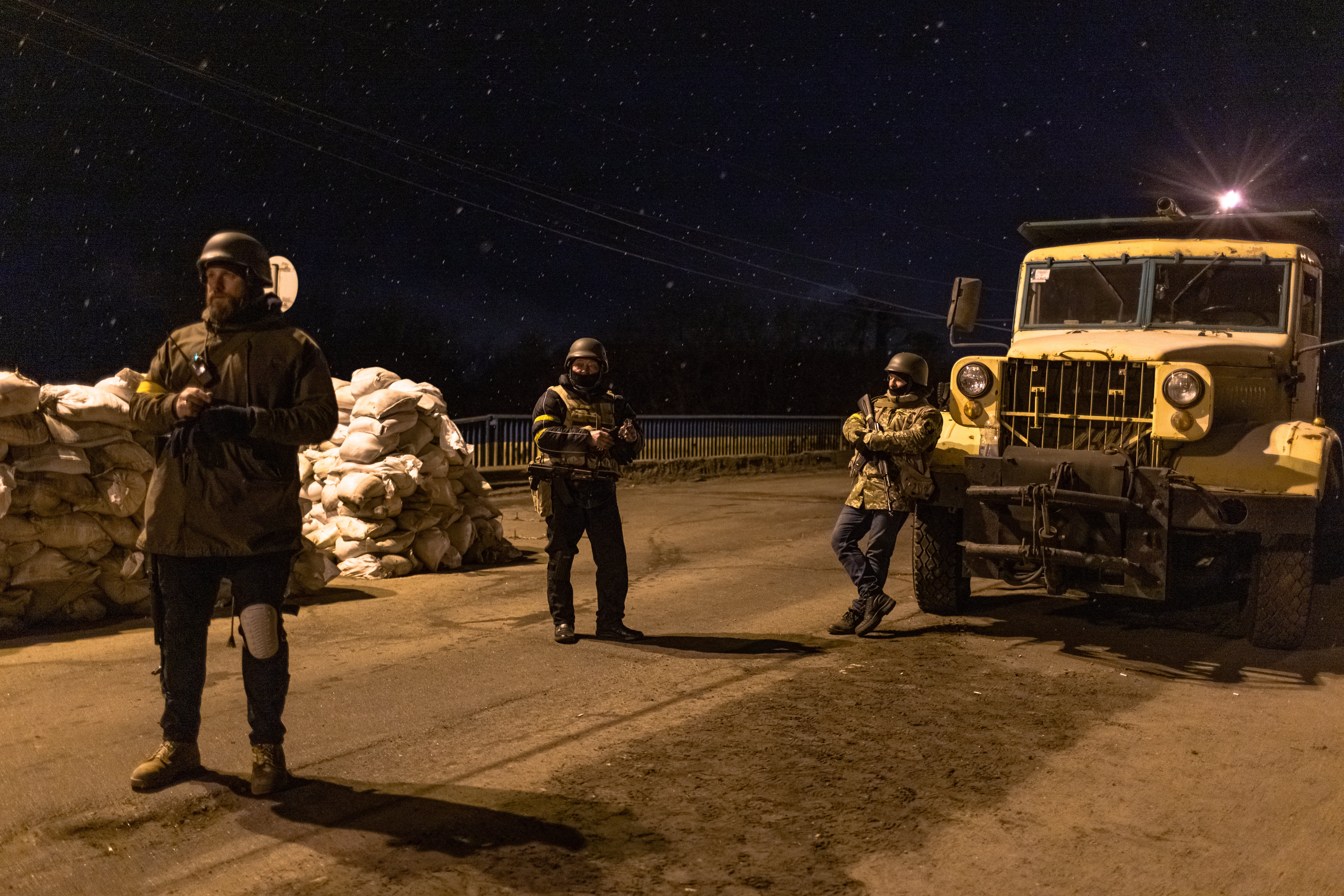
The likes of Calm, Leonid, Yulia, and Lydia are being supported by volunteer groups who have been making supplies – from military camouflage netting to Molotov cocktails and anti-tank obstacles – to send to the front lines.
Back in the shopping mall turned shelter in Vinnytsia, as the air raid siren sounds once more, Lydia helps dish out tea and food for men, women, elderly and children, who are living on mattresses strewn across the main shopping court.
Many of the families here are stuck indefinitely because their homes have been bombed and men of fighting age are not allowed to leave the country.
Their lifeline is the shelter Lydia is helping provide at the mall – and she is determined to keep doing her bit.
“I am proud to be a citizen of this country and proud to serve for this country,” she says.
“I will do what I can.”
The Independent has a proud history of campaigning for the rights of the most vulnerable, and we first ran our Refugees Welcome campaign during the war in Syria in 2015. Now, as we renew our campaign and launch this petition in the wake of the unfolding Ukrainian crisis, we are calling on the government to go further and faster to ensure help is delivered. To find out more about our Refugees Welcome campaign, click here. To sign the petition click here. If you would like to donate then please click here for our GoFundMe page.
Join our commenting forum
Join thought-provoking conversations, follow other Independent readers and see their replies
Comments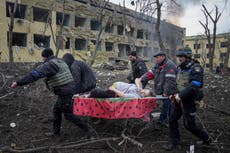

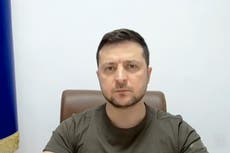
Bookmark popover
Removed from bookmarks